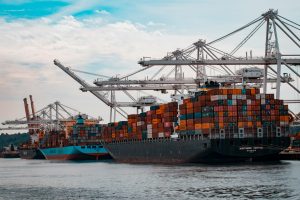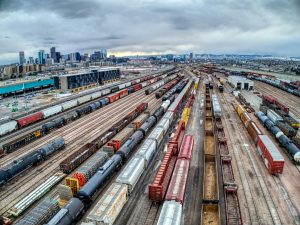Demystifying Freight Insurance: What Every Shipper Needs to Know to Protect Their Cargo
Shipping cargo across the country or across the world involves countless moving parts. There’s warehouse handling. There’s customs inspections. There’s weather. No matter how carefully a shipment is planned, things can go wrong. That’s where freight insurance steps in.
Freight insurance provides peace of mind and financial protection for your goods in transit. Let’s break down what it is, how it works, and why it’s a must for every shipper, whether you’re sending your cargo by land, air, or sea.
What Is Freight Insurance?
Freight insurance, sometimes called cargo insurance, is a policy that covers the value of your goods against loss, theft, or damage while they’re in transit. It applies to domestic and international shipments and ensures that if something happens to your cargo, you’re compensated based on its declared value.
It’s important to understand that freight insurance is not the same as carrier liability. Carriers are only responsible for damage or loss that they directly cause and even then, compensation is often limited. For example, ocean carriers typically cover only a few dollars per pound, regardless of the cargo’s actual value. That means if your $50,000 shipment of electronics is damaged, you might receive only a fraction of its worth.
Freight insurance fills that gap, ensuring you’re not left covering a significant loss.
How Freight Insurance Works
When you purchase freight insurance, you’re essentially transferring the financial risk of cargo loss or damage to an insurer. Here’s what happens behind the scenes:
- You declare your shipment’s value. Typically, the total value is the commercial invoice value, plus the cost of freight and sometimes a percentage for anticipated profit.
- Your insurance premium is calculated based on factors like cargo type, transport mode, route, and risk exposure.
- Your policy goes into effect once the shipment leaves its origin and remains active until delivery at its final destination.
- If a loss or damage occurs, you can file a claim with the insurer, supported by documentation such as a bill of lading, photos, and a damage report.
The amount you recover depends on your coverage type, claim evidence, and declared value. A freight forwarder like Sheltered International helps streamline this process by handling documentation, coordinating with carriers, and ensuring your claim is processed efficiently.
Carrier Liability vs. Freight Insurance
A common misconception among shippers is assuming that carriers automatically insure their cargo. In reality, carrier liability is limited, and it’s not true insurance.
| Carrier Liability | Freight Insurance | |
| Coverage | Only covers damage proven to be the carrier’s fault | Covers loss or damage from most external causes |
| Compensation | Limited by weight or value, often pennies on the dollar | Based on full declared cargo value |
| Claims Process | Complex and slow | Streamlined and straightforward |
| Who Pays? | Carrier, only if negligence is proven | Insurer pays per your policy terms |
Common Misconceptions About Freight Insurance
Let’s clear up a few myths that often cause confusion:
“My carrier automatically covers my shipment.”
Most carriers include only basic liability coverage, which is not full insurance. It may exclude natural disasters, rough handling, or theft, and only applies when the carrier is clearly at fault.
“Insurance is too expensive for smaller shipments.”
Freight insurance is typically very affordable, often a small percentage of your cargo’s total value. For most shippers, it’s a small price to pay for complete peace of mind.
“I only need insurance for international freight.”
While long-haul shipments carry more risk, domestic freight can also be damaged in transit or while loading/unloading. Even short routes can benefit from proper coverage.
Types of Freight Insurance Coverage
There are several forms of freight insurance, and knowing the difference ensures you choose the right one for your operation.
- All-Risk Coverage
This is the broadest and most comprehensive form of insurance. It covers loss or damage from most external causes, including theft, weather events, mishandling, or accidents. Most importers and exporters choose all-risk coverage for high-value or fragile goods.
- Total Loss Coverage
This policy protects you only if your shipment is completely lost. For example, a shipment is considered a “total loss” if a container falls overboard or a truck is destroyed in an accident. It’s often used for bulk commodities or lower-value shipments.
- Named Perils Coverage
Sometimes call Free from Particular Average (FPA) this policy covers only risks specifically listed in the agreement, such as fire, collision, or natural disasters. It’s less expensive but offers limited protection.
The Role of Incoterms in Insurance Responsibility
Your shipping contract likely includes Incoterms, which determine who is responsible for transport, customs, and insurance at each stage. Sometimes, insurance is required as part of the Incoterms.
- CIF (Cost, Insurance, and Freight): The seller must provide minimum insurance coverage until the goods reach the destination port.
- FOB (Free On Board): The buyer assumes responsibility, including insurance, once the goods are loaded onto the vessel.
How to Choose the Right Freight Insurance Policy
Every shipment is different. Before purchasing coverage, evaluate the following factors:
- Cargo Type and Value: Fragile or high-value goods require comprehensive protection.
- Transport Mode: Air freight has different risks than ocean freight, which are poles apart from train and truck freight.
- Route and Destination: Consider weather, political stability, and regional theft rates. Even heavily trafficked routes like the Suez Canal can have issues.
- Packaging Quality: Proper packaging reduces claim risk and may lower premiums.
- Experience of Your Freight Forwarder: Partner with an expert who can assess your shipment risk and recommend suitable coverage.
At Sheltered International, we review all of these variables to help clients select the most appropriate policy for their unique supply chain.
Stay in Control with Sheltered International
Global supply chains are constantly shifting. SiShips puts the shipper in control, offering efficient and cost-effective ways to transport your product.
To learn more about our personalized expertise and state-of-the-art software, contact us today.




